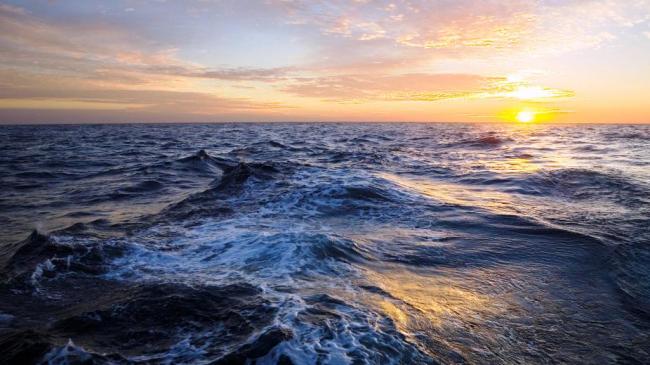
Oceanic plastic trash conveys disease to coral reefs: Study
California, Jan 27 (IBNS): For coral reefs, the threat of climate change and bleaching are bad enough.
An international research group led by Cornell University has found that plastic trash – ubiquitous throughout the world’s oceans – intensifies disease for coral, adding to reef peril, according to a new study in the journal Science, Jan. 26.
“Plastic debris acts like a marine motor home for microbes,” said the study’s lead author, Joleah Lamb, a postdoctoral research fellow at Cornell. She began collecting this data as a doctoral candidate at James Cook University in Australia.
“Plastics make ideal vessels for colonizing microscopic organisms that could trigger disease if they come into contact with corals,” Lamb said. “Plastic items – commonly made of polypropylene, such as bottle caps and toothbrushes – have been shown to become heavily inhabited by bacteria. This is associated with the globally devastating group of coral diseases known as white syndromes.”
When plastic debris meets coral, the authors say, the likelihood of disease increases from 4 to 89 percent – a 20-fold change. The scientists estimate that about 11.1 billion plastic items are entangled on reefs across the Asia-Pacific region, and that this will likely increase 40 percent over the next seven years.
Coral are tiny animals with living tissue that cling to and build upon one another to form “apartments,” or reefs. Bacterial pathogens ride aboard the plastics, disturbing delicate coral tissues and their microbiome.
“What’s troubling about coral disease is that once the coral tissue loss occurs, it’s not coming back,” said Lamb. “It’s like getting gangrene on your foot and there is nothing you can do to stop it from affecting your whole body.”
Lamb and colleagues surveyed 159 coral reefs from Indonesia, Australia, Myanmar and Thailand, visually examining nearly 125,000 reef-building corals for tissue loss and disease lesions. The number of plastic items varied widely, from 0.4 items per 100 square meters (about the size of a two-bedroom Manhattan flat) in Australia, to 25.6 items per 100 square meters in Indonesia. This is significant given that 4.8 million to 12.7 million metric tons of plastic waste are estimated to enter the ocean in a single year, Lamb said.
The scientists forecast that by 2025, plastic going into the marine environment will increase to roughly 15.7 billion plastic items on coral reefs, which could lead to skeletal eroding band disease, white syndromes and black band disease.
“Our work shows that plastic pollution is killing corals. Our goal is to focus less on measuring things dying and more on finding solutions,” said senior author Drew Harvell, professor of ecology and evolutionary biology. “While we can’t stop the huge impact of global warming on coral health in the short term, this new work should drive policy toward reducing plastic pollution.”
Coral reefs are productive habitats in the middle of nutrient-poor waters, Harvell said. Thanks to the symbiotic relationship between corals and their solar-powered algae, “this miracle of construction creates the foundation for the greatest biodiversity in our oceans,” she said. “Corals are creating a habitat for other species, and reefs are critical to fisheries.”
Said Lamb: “This study demonstrates that reductions in the amount of plastic waste entering the ocean will have direct benefits to coral reefs by reducing disease-associated mortality.”
Underwater seagrass meadows dial back polluted seawater
Co-authors of the paper, “Plastic Waste Associated with Disease on Coral Reefs,” include Evan Fiorenza ’17, now a graduate student at the University of Washington; Courtney Couch, Ph.D. ’13, now a postdoctoral researcher at the University of Hawaii, Manoa; Bette Willis and Lisa Kelly of James Cook University; Robert Howard and Douglas Rader at the Environmental Defense Fund; James True, Prince of Songkla University; Thailand; Awaludinnoer Ahmad, The Nature Conservancy; and Jamaluddin Jompa, Hasanuddin University, Indonesia.
Funding was provided by the National Science Foundation, the National Oceanic and Atmospheric Administration, The Nature Conservancy, the Environmental Defense Fund, the World Bank, the Australian Research Council and Cornell’s Atkinson Center for a Sustainable Future.
Support Our Journalism
We cannot do without you.. your contribution supports unbiased journalism
IBNS is not driven by any ism- not wokeism, not racism, not skewed secularism, not hyper right-wing or left liberal ideals, nor by any hardline religious beliefs or hyper nationalism. We want to serve you good old objective news, as they are. We do not judge or preach. We let people decide for themselves. We only try to present factual and well-sourced news.







